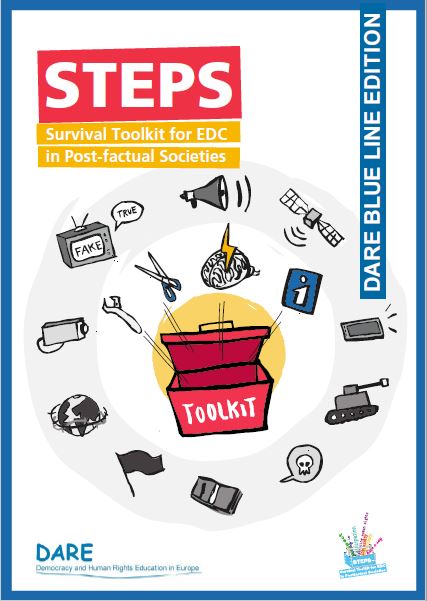|
|
| (11 intermediate revisions by the same user not shown) |
| Line 18: |
Line 18: |
| | | | |
| | <hr class=boldline > | | <hr class=boldline > |
| − | ==Reference== | + | |
| − | * From: [https://www.journalism-edu.org/ Intercultural Understanding Human Rights and Ethics in Journalism]. A training manual for educators
| + | <div class=left-box> |
| | + | ===Reference=== |
| | + | [[File:Journalism-edu.png | link=https://www.journalism-edu.org/ | 300px]] |
| | + | |
| | + | Intercultural Understanding Human Rights and Ethics in Journalism Online manual on intercultural under­standing, ethics and human rights | [https://www.journalism-edu.org/ Online] |
| | + | </div> |
| | | | |
| | <hr class=boldline> | | <hr class=boldline> |
| | | | |
| | <div class=experience> | | <div class=experience> |
| | + | |
| | ===TIPS FOR FACILITATORS=== | | ===TIPS FOR FACILITATORS=== |
| − | As follow up activity participants can analyse real cases considered by the European Court of Human Rights in Strasbourg from their database: https://hudoc.echr.coe.int/eng | + | As follow up activity: Analyse real cases from the [https://hudoc.echr.coe.int/eng European Court of Human Rights]' database. Hand out the notes with the bingo pattern or create your own sheet with the most used phrases of your own language. |
| | + | |
| | | | |
| − | Hand out the notes with the bingo pattern or create your own sheet with the most used phrases of your own language.
| |
| | </div> | | </div> |
| | + | |
| | + | <div class=experience> |
| | + | |
| | + | ===TIPS FOR FACILITATORS=== |
| | + | Link the topic with learning about digitalisation: |
| | + | * [[Networks under certain circumstances]] |
| | + | * [[Fake News, Disinformation, Malinformation]] |
| | + | * [[Fake through AI]] |
| | + | * [[Media Literacy]] |
| | + | </div> |
| | + | |
| | + | |
| | </div> | | </div> |
| | | | |
| Line 39: |
Line 57: |
| | [[File:Group-size.png | 20px | Group Size ]] -30 people | | [[File:Group-size.png | 20px | Group Size ]] -30 people |
| | | | |
| − | [[File:Keywords.png | 20px | Keywords ]] Freedom of expression, human rights, democracy, communication | + | [[File:Keywords.png | 20px | Keywords ]] Freedom of expression, human rights, democracy, communication |
| | + | |
| | + | <hr class=simpleline> |
| | + | |
| | | | |
| | + | [[File:c-digcomp.png | link=DigComp Digital Competences | 100px]]<br> |
| | + | 2.3, 2.5 |
| | + | <hr class=simpleline> |
| | ===From: === | | ===From: === |
| | [[File:Journalism-edu.png | link=https://www.journalism-edu.org/]] | | [[File:Journalism-edu.png | link=https://www.journalism-edu.org/]] |
| Line 61: |
Line 85: |
| | </div> | | </div> |
| | | | |
| − | <div class=left-box>
| |
| − | '''Toolbox'''
| |
| − | [[File:Journalism-edu.png | link=https://www.journalism-edu.org/]]
| |
| | | | |
| − | Online manual on intercultural under­standing, ethics and human rights
| |
| − |
| |
| − | [https://www.journalism-edu.org/ Online]
| |
| − | </div>
| |
| | </div> | | </div> |
| | + | [[Category:Method]] |
| | + | [[Category:Method Digitalisation]] |
Discuss with a group freedom of expression - an essential building brick of democratic discourse and of the democratic public.
Goals
- Understand the concept of freedom of expression
Steps
1. Trainer introduces the task through a challenging question: Freedom of expression is an important human right, but are there situations in which this freedom should be restricted?
2. Participants have to explore arguments for and against an absolute freedom of expression. Participants are divided in at least two groups, because participants will be working with freedom of expression from opposite perspectives.
- Task for groups A: Find as many arguments as possible to support the idea of an absolute freedom of expression
- Task for groups B: Find as many arguments as possible to support the idea that freedom of expression, in some circum-stances, should be restricted. Participants get about 30 minutes to find the arguments and write it on paper.
3. Groups present their work in a plenary session. Those who that have worked with arguments for an absolute freedom of expression shall present their arguments first. Group discussion continues with theory about freedom of expression, the power of states and the central question on where the line should be drawn.
Reference

Intercultural Understanding Human Rights and Ethics in Journalism Online manual on intercultural understanding, ethics and human rights | Online
TIPS FOR FACILITATORS
As follow up activity: Analyse real cases from the European Court of Human Rights' database. Hand out the notes with the bingo pattern or create your own sheet with the most used phrases of your own language.
TIPS FOR FACILITATORS
Link the topic with learning about digitalisation:
 40 minutes
40 minutes
 Standard
Standard
 -30 people
-30 people
 Freedom of expression, human rights, democracy, communication
Freedom of expression, human rights, democracy, communication

2.3, 2.5
From:

Related:
STEPS-Handbook
 Survival Toolkit for EDC in Post-factual Societies
Survival Toolkit for EDC in Post-factual Societies
Download


